
When developer and Itch Queer Games Bundle co-founder Taylor McCue awoke one morning in late July it was to panic online. Overnight and without warning, indie-focused storefront itch.io had indiscriminately de-indexed all titles tagged as NSFW from its browse and search pages, regardless of content or nature. Suddenly, thousands of games were far harder to discover on the platform, and less easily accessible to paying customers.
"The first 24 hours were chaos, and no one knew what to expect," says McCue, whose semi-autobiographical narrative visual novel about trauma and sex work, He Fucked the Girl Out of Me, was impacted. "I dropped everything I was doing and focused on saving the game. I put it up on archive.org and started paying for professional hosting instead of free hosting so my games would remain available... I stopped game development and changed my goal to saving my existing games."
The itch.io incident was the second blow for adult game developers in weeks. Earlier that month, Steam made headlines after Valve quietly updated its developer guidelines to prohibit "certain types of adult content" and confirmed it would be "retiring" select games following conversations with payment processors.
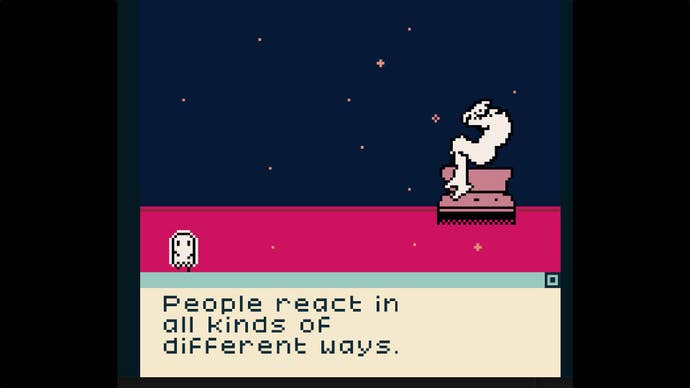
For some developers, there were signs of increased caution at Valve even prior to that. As Bobbi Augustine Sand, of developer Transcenders Media, explains, the studio faced a review process more thorough than it had ever experienced before when it submitted its game, Truer Than You, to Valve earlier this year. Despite Truer Than You being a queer visual novel containing, as per its Steam page, "non-explicit sexual content" and "veiled nudity", Valve immediately rejected an initial build, asking the team to "submit a means to reach each ending of the game, as well as all of the content in the game that could affect our replies in the content survey".
It wasn't long before the reason for Valve's increased caution became clear. Behind the scenes, conservative Australian pressure group Collective Shout had been inundating payment processors with complaints about Steam, ostensibly protesting the presence of "rape, sexual torture, and incest games" on the platform following the controversy around No Mercy. Payment processors in turn had threatened to withdraw payment mechanisms if action wasn't taken, and it would soon transpire that Collective Shout had itch.io in its sights, too.
It was just a few weeks later that itch.io began hastily de-indexing games tagged as NSFW, later explaining it had needed to "act urgently to protect the platform's core payment infrastructure" following targeting by Collective Shout. Unlike Valve, however, which was able to pull problematic games in a more targeted manner, itch.io had essentially been forced to adopt a ‘scorched earth' solution as a result of its open nature. Given games can be published on itch.io without review, it explained on its blog, it "could not rely on user-provided tagging to be accurate enough for a targeted approach, so a broader review was necessary to be thorough."
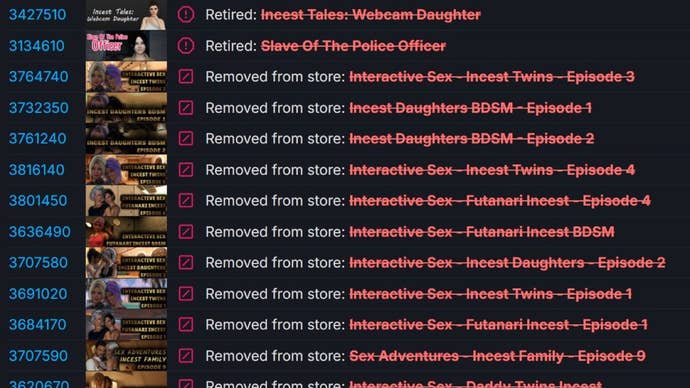
As a result, Collective Shout's campaign had an impact far beyond the 'objectionable' games it claimed to be targeting, ultimately affecting a significant number of developers whose work dealt more broadly with "adult" themes - many being queer artists wishing to explore queer stories. As Mediterranea Inferno developer Lorenzo Redaelli puts it, "It's impossible to talk about queerness without addressing the sexual aspect — the body, the contact between bodies. Sure, you could go for allegory, but I wonder, at this rate, how allegorical we'll have to become before we end up telling something incomprehensible and useless."
And "adult" doesn't automatically mean pornographic. As McCue notes, "In the past few years, there has been a queer renaissance in gaming, [and] within that there's been a smaller sphere writing about sexual trauma. It's a tiny, disconnected, embryonic scene, and it might be literally erased from the web as a result of what these policies are doing... Right now, it's 100 percent acceptable to make a game where you kill people graphically, but it's not to make games about your experiences with sexual abuse/violence/trauma. People are using the spectre of sexual violence to silence people from talking about their own lives."
On 28th July, around a week after its previous communication with developers, Itch.io announced it was beginning the process of re-indexing adult games, but only if they were free – leading some creators to forfeit payment simply to restore the visibility of their titles. McCue was one of those who opted to drop payments, instead creating a separate 'donate here' page as a way to generate income - but it wasn't long before that page was de-indexed too. "It's scary getting donations from players right now because I don't know if I'll even be able to withdraw the money," they explain. "Creatively, it's just turned into another distraction to keep me from getting games done. I don't need any more distractions or worries, but that's where we are right now. I'm just doing my best one day at a time."
"People are using the spectre of sexual violence to silence people from talking about their own lives."
For game developer and current Itch Queer Bundle organiser Caroline Delbert, itch.io's move was less personally impactful, but still concerning. "I'm lucky, in a way, that [my de-indexed games] never made much money," she explains, "because I don't miss 'not very much money' and will be okay... [but] the internet has long been a sanctuary for queer people [whose] daily lives and logistics can be so cruel, and we have more adults than ever living with their parents and siblings well into adulthood. Sometimes, a small amount of money they can make independently is the only money they have access to; [and is even more vital] if they want to buy something like a gender-affirming outfit that their family wouldn't approve of."
Outwardly at least, there's been little progress at itch.io in the nearly six weeks since its last communication with developers in July, when it said it was "actively reaching out to other payment processors [who might be] more willing to work with this kind of content". Paid adult games remain de-indexed on the platform (which hasn't yet responded to Eurogamer's request for comment), effectively leaving impacted developers in limbo. Steam, too, is still to offer additional clarity to developers after vaguely banning "certain types of adult content".
For developer Robert Yang, whose games – including the acclaimed historical bathroom sim The Tearoom - frequently explore gay subculture through the lens of sex, that continued uncertainty is damaging in itself. "I literally have a gay fishing game that's 99 percent done and I don't know whether to release it now, or to wait and see what the new rules and conditions will be," he explains. "[It] creates a real direct harm on LGBTQ developers like me: a hesitance, a fear, a chilling effect on our free speech and expression. It's already much harder to find games with LGBTQ themes! The censorship is happening already, right now!"
The danger, suggests Sand, is that queer artists might feel obliged to self-censor to survive. "Making a living by creating art is very hard these days," they explain, "and I don't think it will become easier... but as a general principle I think it's important to try to avoid self-censoring and obeying in advance... People are super quick to adapt: look at how certain words aren't used on social media anymore, since using them limits visibility. Having the content of our culture being dictated by corporations isn't any less harmful than if it was done by governments. [It] gets watered out and becomes cowardly when we can't express ourselves freely... If this becomes the standard, it would affect games, stories, artists, the industry, and our societies."
And as many we spoke to highlighted, an attack on adult games isn't just damaging for queer and marginalised voices, but for the medium as a whole. "We are sick and tired of how games are viewed as vile and derogatory by people who don't understand them," says Sand. "We want games to be taken seriously as a medium. Games that include sex as a topic or content are no different from other media doing the same. Restricting content with age limits absolutely has its place, but those restrictions should be reasonable... Right now, a lot of content that is not harmful gets vilified. That's not good for culture or our society."
"Art is the most precious resource we have as humanity, and that's something that concerns everyone."
Delbert agrees. "People make art about traumatizing events, taboos between adults, and even violence," she explains, "and these are paid for every day by people who go to the movies or buy novels. Video games and interactive fiction have the same potential to transform lives for the better." And that's a perspective Redaelli shares. "We must treat queer art as art," he says. "Art is the most precious resource we have as humanity, and that's something that concerns everyone... For years, indie authors have been working hard creating and fighting against the market to dignify the art of video games, and that also means producing video games for adults, where a video game is not a toy. Let us be adults."
"My fear," says McCue similarly, "is we are going to end up with games being reduced to a toy rather than an artform. There's nothing wrong with toys, but these policies threaten to create a lost era of game-making where people will be afraid to make anything controversial."
Despite obvious and understandable frustration among developers, many we spoke to expressed some sympathy for the storefronts caught up in Collective Shout's crusade, and rejected the notion payment processors should, as McCue puts it, "get to make moral judgements about art." Says Yang: "Personally, I don't blame Itch for this. I also don't even blame Valve that much. They kept a status quo compromise that worked OK for a while, until this latest wave of anti-sexuality right wing culture war proved to be a tipping point. Organising and resisting for this fight, and future fights, is a valid and important strategy."
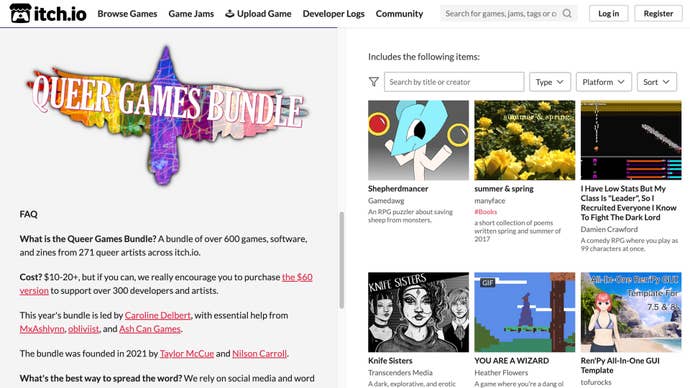
Fortunately, itch.io's Queer Games Bundle survived recent events, even managing to maintain its front page promotion despite including "dozens" of adult content projects. This made it one of the few avenues for de-listed games to retain general visibility on the platform, and ultimately raised $16.5K for queer artists - a 12.5 percent increase compared to last year's bundle.
Organiser Delbert remains keen to see itch.io restore de-indexed projects to searchability and permit payments without caveats, but she also hopes to see pushback against some of the restrictions imposed by payment processors. "Whatever changes [itch.io] leadership is making to comply," she says, "I can't imagine [they're] good for free expression overall. The site has long made you check a box if your projects are adult, so that they can be gated... Having to do more than that seems really phony and performative and will likely encourage people to avoid whatever the rules are in whatever ways they can in order to keep their livelihoods."
"Put that 30 percent tax on the entire game industry to good use [Valve], be a good landlord and fight for us!"
Some, though, point to Steam's dominance, noting Valve's unique position to – as Mediterranea Inferno publisher Santa Ragione puts it - "demand change and stand up to political, financial, and other forms of bullying". And Yang shares a similar sentiment. "I hope Valve definitely understands this whole mess as the first of many attacks on their autonomy," he says. "The last time they faced a big threat, like Microsoft closing off Windows, Valve spun up their Linux and Steam Machine research, and now we have lovely Steam Decks. I hope [it's] doing similar war mobilisation here, spinning up serious fintech/payment research to make sure payment processors can't make them censor games again. Put that 30 percent tax on the entire game industry to good use, be a good landlord and fight for us!"
McCue, for now, is adopting a pragmatic approach. "Assuming there is no change," they say, "I'll just keep making games regardless of how the political winds blow." But Yang sees recent events, especially when viewed alongside the UK's controversial Online Safety Act and similar legislation brewing in the US, as indicative of more seismic change. "The open public internet is dying, and it's probably only going to get worse," he says. "We might need to start imagining the end of the internet, in a cultural sense, because the party is certainly winding down."
Yang recalls demoing his new fishing project at a recent community game gallery in Melbourne "and no one had to beg any right-wing censorship groups or tech companies for permission". One of his more explicit gay games, Zugzwang, is also set to appear in a German museum. "So as an artist, in the long term," he says, "I want to find my way to this other future, where we experience games more as public culture and local community - like festivals, performances, and sports, that are all best understood offline and in-person... For the future of the art form, it's maybe a more resilient cultural strategy than putting all our games on just two websites."
Love Eurogamer? Make us a Preferred Source on Google and catch more of our coverage in your feeds.




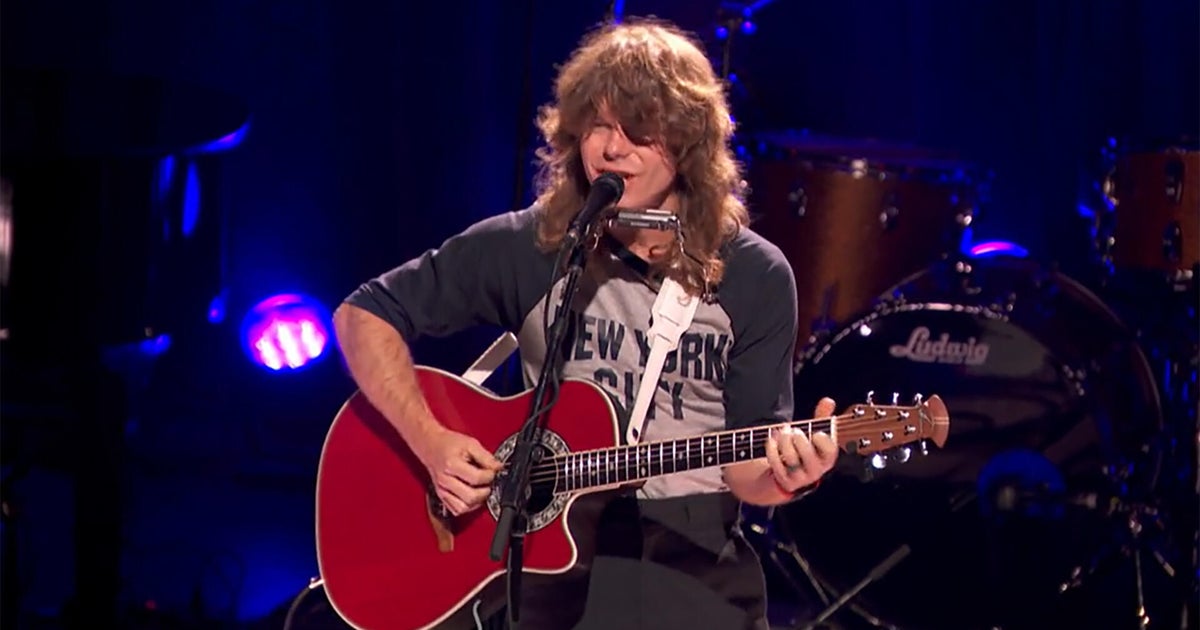


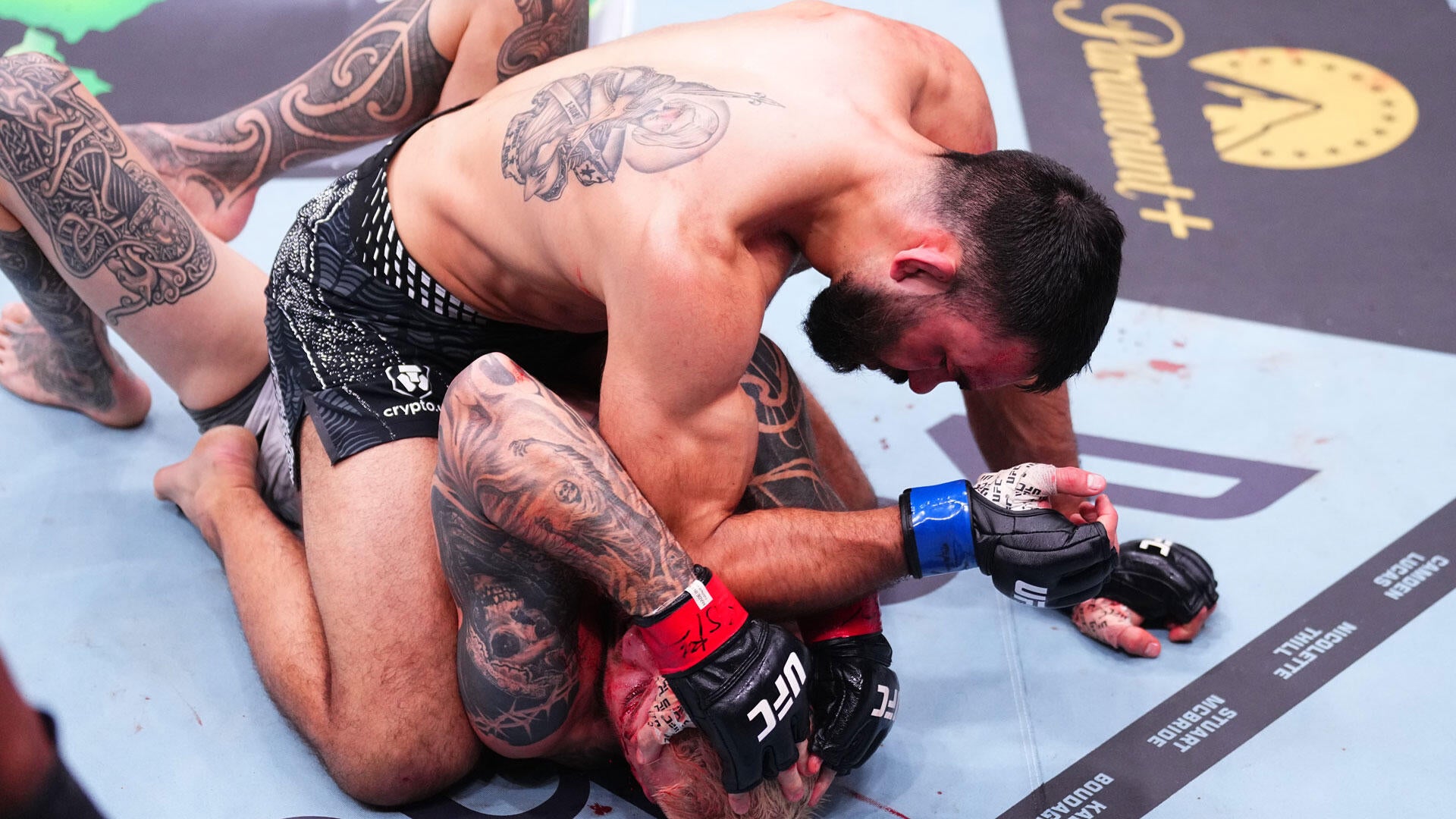
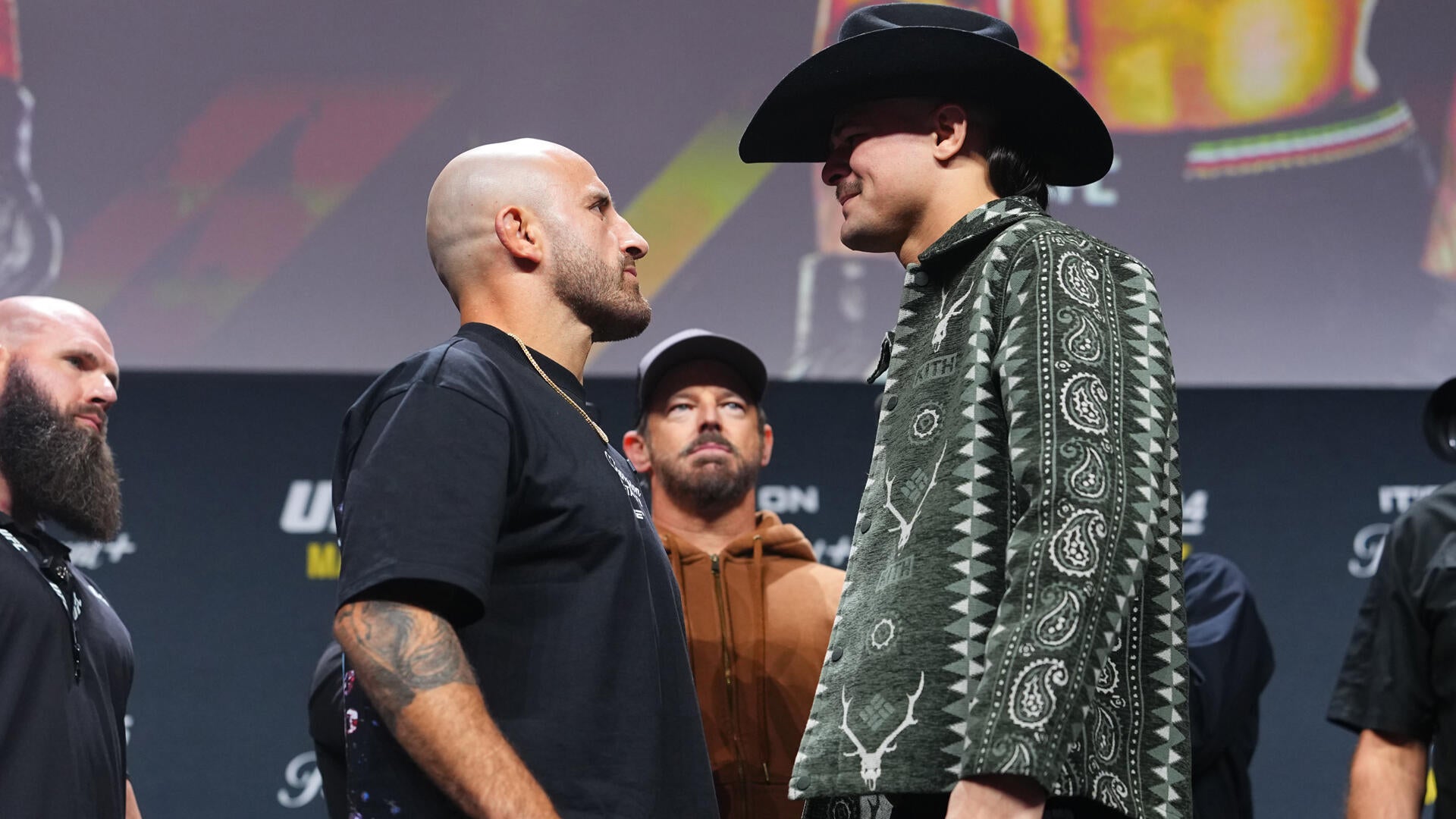


-3.png)



